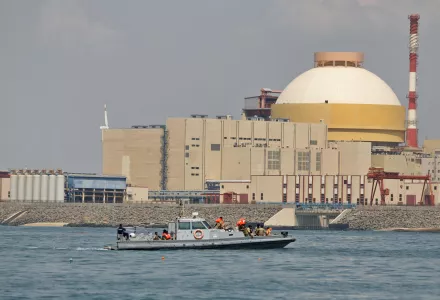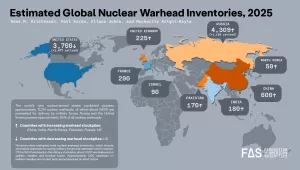
Summary
In this Project on Managing the Atom Discussion Paper, Mansoor Ahmed examines India’s fissile material production capacity and the military potential of its unsafeguarded nuclear fuel cycle and energy program. The paper details India’s existing nuclear arsenal and its potential for expansion, with a focus on three key areas, namely:
-
The principles governing the separation of India’s civil and military fuel cycle facilities;
-
The size and weapons potential of India’s existing unsafeguarded stocks of weapons-grade highly enriched uranium and plutonium as well as its unsafeguarded stockpile of reactor-grade plutonium (maintained as a “strategic reserve” and as fuel for India’s fast breeder program); and
-
The fissile material production capacity of its reactor fleet, its existing and planned reprocessing facilities, and growing uranium enrichment program.
The paper suggests that India’s existing and future nuclear capability fuels regional security anxieties with Pakistan and impedes progress on the early conclusion of a Fissile Material Cut-off Treaty. Dr. Ahmed offers policy recommendations for managing the South Asian fissile material conundrum and calls for a transparent and verifiable separation of civil and military fuel cycle and reactor programs in India and beyond.
Ahmed, Mansoor. “India’s Nuclear Exceptionalism.” Managing the Atom Project, Belfer Center, May 2017




